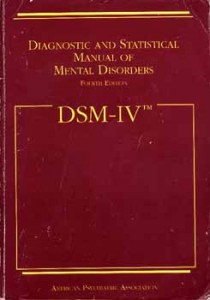Comorbid Psychiatric Disorders Impair Response to Psychosocial Treatment in Adolescents with Bipolar Disorder
At the 2019 meeting of the International Society for Bipolar Disorders, researcher Marc J. Weintraub and colleagues followed 145 adolescents with bipolar disorder over a period of two years. The adolescents with comorbid disorders (compared to those with bipolar disorder alone) fared more poorly in response to psychosocial treatment.
Weintraub and colleagues found that the adolescents who had anxiety disorders in addition to their bipolar disorder spent more weeks depressed, had more severe symptoms of (hypo)mania, and had more family conflict over the course of the study than those adolescents who had bipolar disorder alone.
Participants who had attention deficit hyperactivity disorder (ADHD) in addition to their bipolar disorder had more weeks with (hypo)manic symptoms, had more severe (hypo)manic symptoms, and greater family conflict than those with bipolar disorder alone.
Those participants with comorbid oppositional defiant disorder (ODD) or conflict disorder in addition to their bipolar disorder had more depressive symptoms and family conflict throughout the study.
Editor’s Note: How to better approach treatment in these diagnostically complex young people is an urgent unmet need, as most research excludes participants with more than one psychiatric disorder. Clinicians treating young people with bipolar disorder and comorbidities such as anxiety disorder, ADHD, and ODD must generally rely on inferences from children with these illnesses, using their own intuition about best treatment approaches rather than having evidence from systematic studies about how best to treat these children. It appears that both psychosocial and pharmacological treatments must be tailored to these more complicated presentations.
Revisions of the DSM-V Related to Bipolar Disorder in Children
 The Pediatric Bipolar conference in March ended with a discussion led by Ellen Leibenluft and Danny Pine of the NIMH about possible changes in the diagnostic criteria for childhood onset bipolar disorder being considered for the fifth version of the Diagnostic and Statistical Manual of Mental Disorders (DSM-V), which will be finalized in the next few years. There has been an increase in the diagnosis of bipolar disorder in children in the past decade, and many have attributed this to over-diagnosis. Controversy about the precise symptoms and thresholds for diagnosis has been prominent in the literature and in the popular press.
The Pediatric Bipolar conference in March ended with a discussion led by Ellen Leibenluft and Danny Pine of the NIMH about possible changes in the diagnostic criteria for childhood onset bipolar disorder being considered for the fifth version of the Diagnostic and Statistical Manual of Mental Disorders (DSM-V), which will be finalized in the next few years. There has been an increase in the diagnosis of bipolar disorder in children in the past decade, and many have attributed this to over-diagnosis. Controversy about the precise symptoms and thresholds for diagnosis has been prominent in the literature and in the popular press.
The major change proposed was that the syndrome of severe mood dysregulation (SMD) described by Leibenluft et al. in 2003, may be called Temper Dysregulation Disorder (TDD), and would not be considered part of the bipolar spectrum. This is in part because SMD is not associated with an increased incidence of a positive family history of bipolar illness. Part of the motivation for separating TDD from bipolar illness is to cut down on what some consider the over-diagnosis of bipolar disorder in children.


